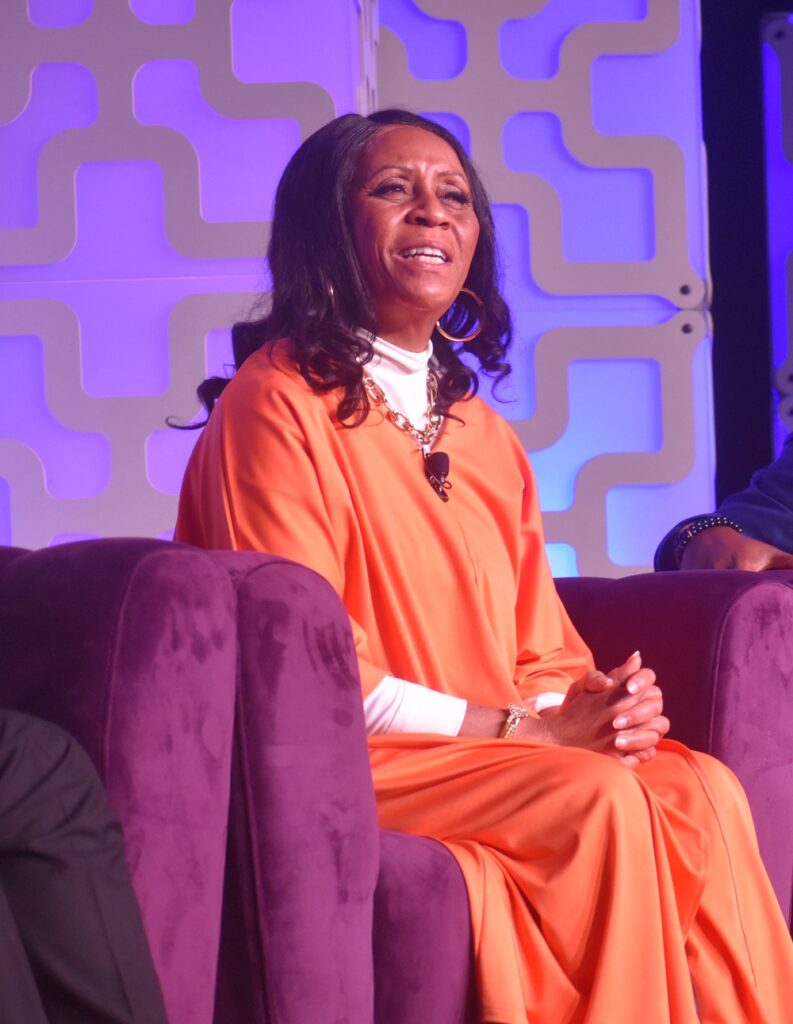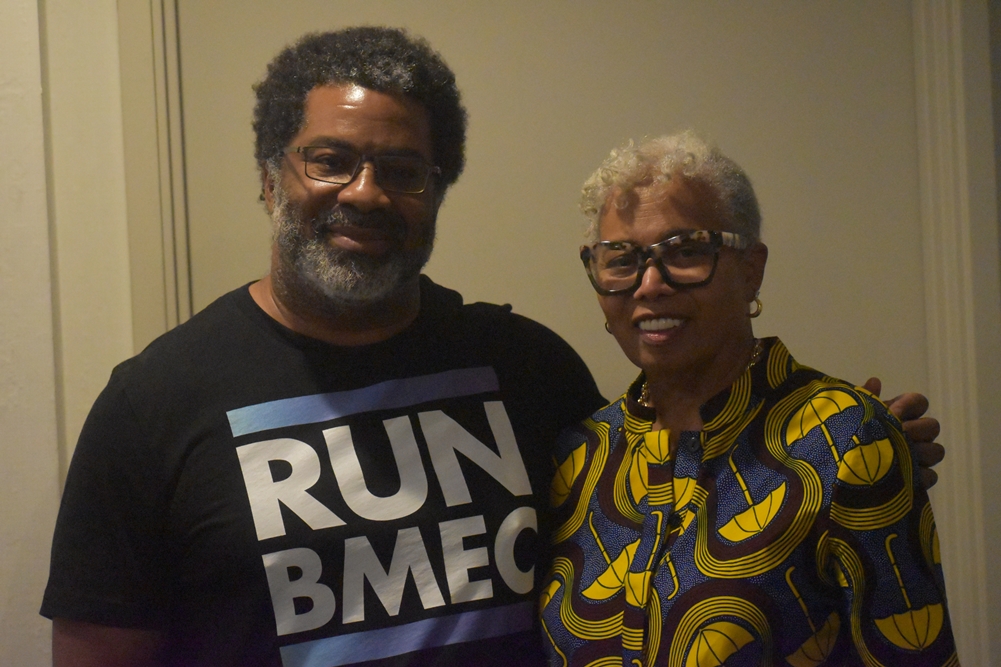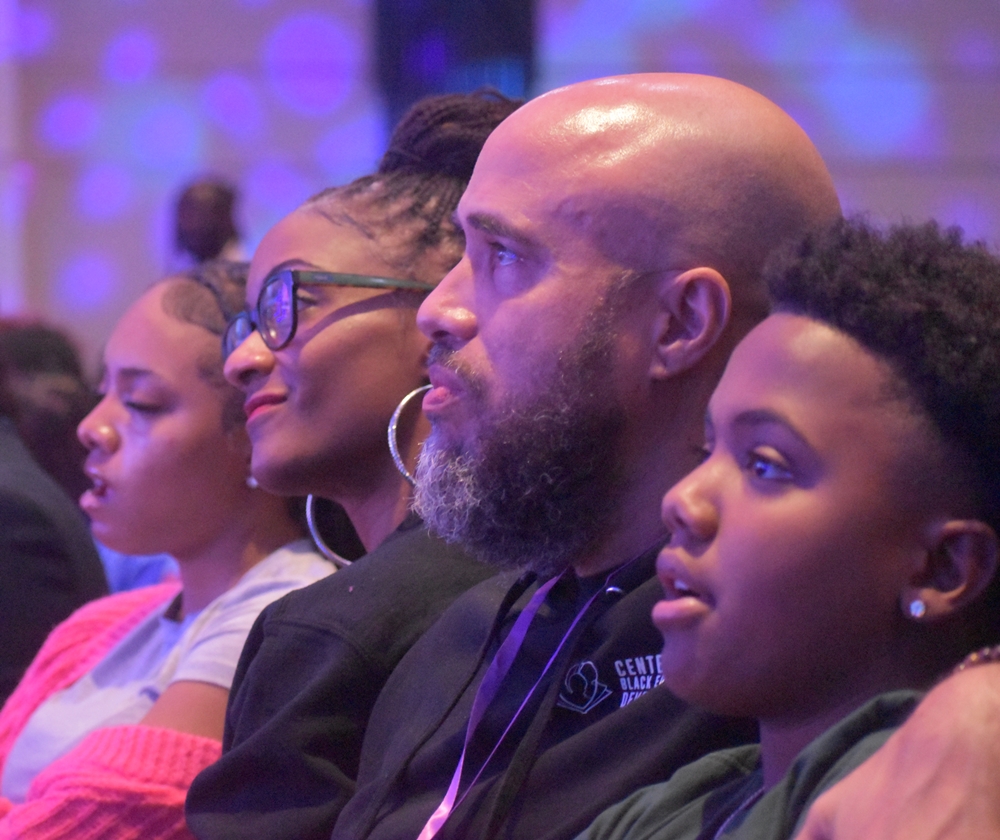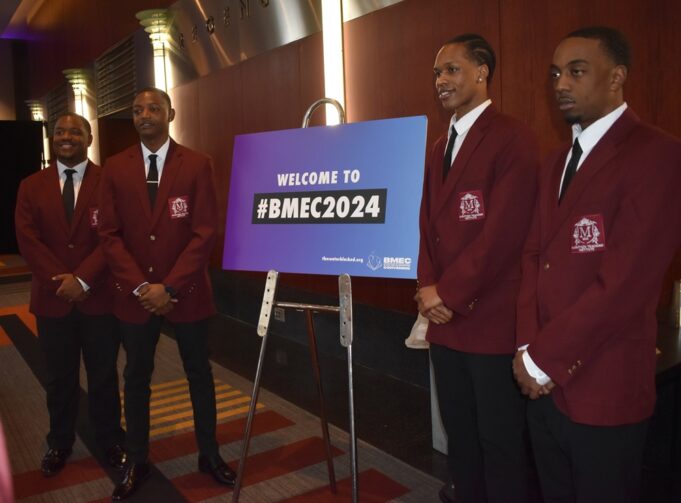PHILADELPHIA—The recently held Black Men in Education Convening (BMEC) conference has emerged as a powerful platform advocating for a reimagined and liberatory education tailored to affirm and empower Black communities.
From November 21–23, educators, community leaders, and parents gathered at the Lowes Hotel in Philadelphia to elevate education as a critical pillar of the Black Agenda.
Over the course of three days, participants from around the country and abroad engaged in passionate discussions, exchanged insights and celebrated impactful leaders shaping the future of education.

The conference opened with remarks from Dr. Tony B. Watlington, Philadelphia school superintendent, and Mayor Cherelle Parker, setting the tone for an event that underscored education as the foundation for empowerment and community growth.
This was followed by an inspiring keynote address from scholar and educator Dr. Gloria Ladson-Billings, who delivered a profound message on reshaping narratives about Black individuals.
Drawing from historical leaders such as Frederick Douglass, W.E.B. Du Bois, and Booker T. Washington, she reminded attendees that education has always been central to plans for Black empowerment and community-building.
Dr. Ladson-Billings celebrated contemporary initiatives, like those led by Haki Madhubuti and New Concept schools, as models of positive representation and education. “Continuing these legacies,” she urged, “is essential to inspiring change and uplifting our communities.”
During her interview with The Final Call, Dr. Ladson-Billings stated that the educational work of the Honorable Elijah Muhammad through the Muhammad University of Islam must be included in the narrative.
One of the most impactful sessions of the conference was a groundbreaking panel discussion featuring Angela Davis, Ericka Huggins, and Hamid Khalid. The discussion centered on the role of education in dismantling systemic racism and building a new equitable society.
Dr. Davis, a longtime activist, tackled the unfinished work of abolition, stressing that ending slavery was not enough unless it was coupled with constructing a society free from systemic racism and repression. Citing W.E.B. Du Bois’ assertion that equality work remains incomplete, she argued that education must be at the heart of efforts to reimagine society.
Her powerful advocacy for “schools, not jails; education, not incarceration” brought a wave of understanding to those in the audience. Dr. Davis highlighted the inadequacies of simply integrating marginalized groups into a flawed system, stating that true abolition requires fundamentally transforming educational institutions to eliminate systemic inequity.

This sentiment resonated with parents and educators alike, inspiring new perspectives on rethinking curriculum, pedagogical methods, and frameworks for inclusion.
Closing the conference in memorable fashion, scholar Dr. Chris Emdin introduced a concept to the attendees—what he called “Pentecostal pedagogy.” Rooted in the energy and collective spirituality of the Black Pentecostal church, this teaching framework transcends individual beliefs and serves as a blueprint for inclusive, impactful education, he explained.
Dr. Emdin emphasized the importance of educators resisting the imposed roles often dictated by systemic oppression. He likened many classrooms to plantations, where students are treated as workers and teachers as wardens.
By urging educators to connect with their spiritual core and step away from these oppressive frameworks, he reframed the narrative around student behavior, seeing it as a protective response to systemic challenges. “Teaching with purpose and passion,” he declared, “can liberate both teacher and student.”
This year’s BMEC honoree, Dr. Ron Walker, was presented with the prestigious Liberator Award. Dr. Walker used his acceptance speech to spark a new dialogue around AI, inviting educators to view “AI” as “Ancestral Intelligence.”
He encouraged the audience to draw on the knowledge, resilience, and wisdom passed down through generations, urging them to redefine AI as a tool that uplifts rather than erases cultural identity.
Dr. William Hayes, a founding member of the organization and master of ceremony of the conference, during an interview with The Final Call, highlighted the critical need to improve the teacher pipeline, particularly for Black male educators.

He emphasized that current efforts have fallen short and called for intentional strategies, such as increasing the number of Black and Indigenous students attending college and reframing teaching as a valuable opportunity, not a sacrifice.
Key themes discussed at the conference included Black identity, masculinity, community improvement, and innovative educational practices, like restorative methods and community-driven family support.
Dr. Hayes also noted the historical significance of the conference—describing it as a rare, safe space for Black men to connect, share vulnerabilities, and collaborate on shared goals.
Parallel discussions throughout the conference shed light on critical challenges, including Black teacher shortages and systemic barriers in education.
The conference celebrated initiatives like the 1 Million Teachers of Color Campaign, which aims to increase the presence of Black educators in classrooms. Participants discussed solutions such as scholarships, mentorship programs, and creating supportive spaces to sustain educators through their careers.
Joyce Abbott, the inspiration behind the popular show “Abbott Elementary,” echoed these sentiments during an interview with The Final Call, advocating for collaboration among Black, Indigenous and Latino educators to improve outcomes for students.
Ms. Abbott stressed the importance of relevant curricula, calling for lessons rooted in foundational skills and stories reflecting the richness of Black history.
The Black Male in Education Convening conference also spotlighted the tradition of mentorship and intergenerational learning, exemplified by educators like Dr. April Warren-Grice.
Her Genius Joy Love initiative seeks to inspire Black students to pursue teaching careers while fostering their professional, cultural, and spiritual development. “Lifting as we climb,” she said, “is the only way to build a sustainable future for Black educators and students alike.”

Sharing a personal impact story, Jahlil Davis Green, a teacher from Philadelphia, spoke to The Final Call about the importance of representation in the classroom. He referenced a touching message from a former student, highlighting the critical role Black educators play in shaping the lives of young learners.
Similarly, Tyrell Dale, an educator at the Washington, D.C.-based Statesman Academy for Boys, emphasized the importance of joy and authenticity when teaching Black boys. “If we’re not teaching with purpose,” Dale stated, “we’re failing our community.”
Organized by veteran educator Sharif El-Mekki, the BMEC conference emphasized love, community, and organizing as crucial pillars for change in education, he noted during his interview with The Final Call.
“Strong messages about addressing anti-Blackness, improving the Black teacher pipeline, and integrating innovative practices like AI fostered deep and meaningful discussion.
The event successfully cultivated a sense of shared purpose and inspired attendees to take actionable steps toward creating a more equitable education system for future generations,” he noted.
“One message resonated throughout the conversations with Dr. Howard Fuller, Dr. Gloria Ladson-Billings, Dr. Greg Carr, and many others during this conference. The recurring theme was the power and necessity of being in community—organizing together, supporting one another, and most importantly, protecting, educating, and loving our children,” Mr. El-Mekki said.
“As Amir Sulayman beautifully put it, ‘We’re all going to be ancestors one day, so we should act accordingly.’ This profound reminder ties perfectly to this conference’s theme, ‘Dreamkeepers—Yesterday, Today, and Forever.’
To truly honor that theme, we must live with intention and responsibility, ensuring that our actions today create a better future for the generations to come. Be the Dreamkeeper our children need,” Mr. El-Mekki concluded.
Participants left with renewed strength and solidarity, prepared to continue the vital work of uplifting Black children and educators. For educators, parents, and community leaders, the BMEC conference was more than an event—it was a clarion call for transformation. A call to use education not only as a tool for knowledge but as a vehicle for liberation.













